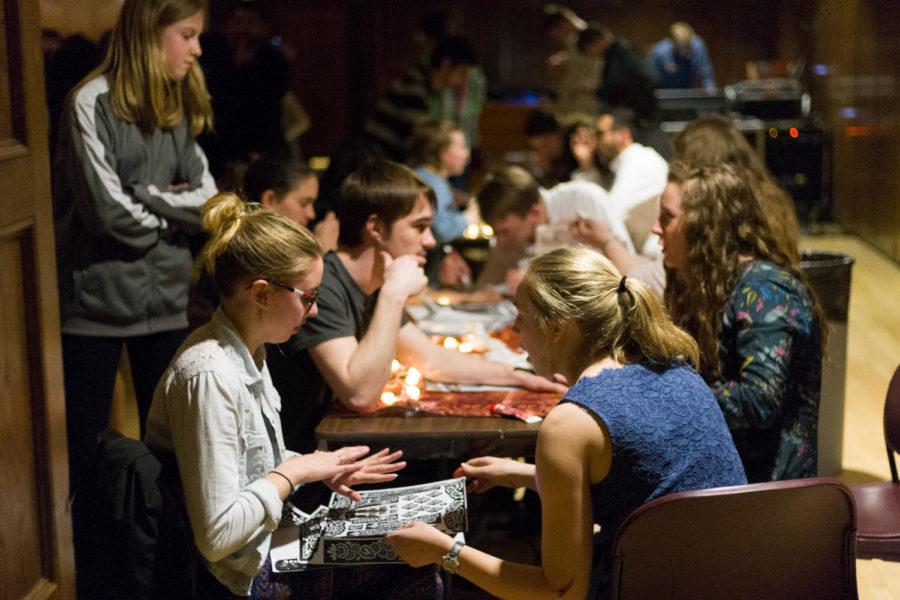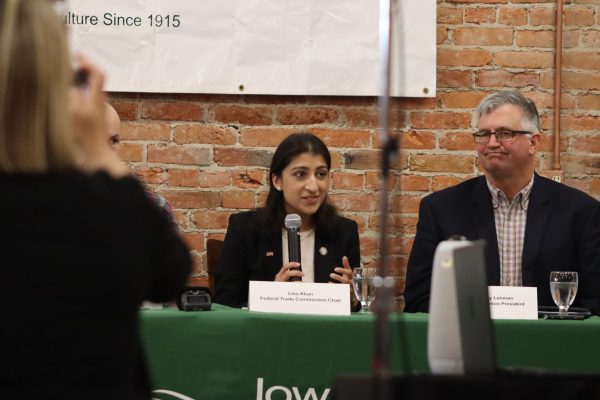Arabic Night gives Iowa State a taste of Arabic culture
The line for the henna station stretched through the room as students waited to have their skin decorated with a paste made from the ground leaves of the henna plant. Arabic night was held in the Great Hall of the Memorial Union on March 5.
March 5, 2017
Arabic Night offered the Iowa State community the chance to experience different aspects of Arabic culture and was sponsored by the Arab Students Association (ASA).
The first official Arabic Night, held Sunday night, consisted of belly and Dabke dancing, traditional food, henna tattoos and other activities in the Great Hall of the Memorial Union.
A booth was also set up for informational purposes by the Middle East Learning & Cultural Center to promote the learning of the Arabic language and culture.
“With what is going on now in the Middle East, people are getting the wrong perceptions of what we are, what are culture is, so I thought Arabic Night will … also promote how we like to enjoy ourselves,” Natali Jouzi, vice president of ASA, said.
The night started with a buffet of traditional foods such as pita bread and hummus, falafel and kabsa. A dance group from Des Moines, Innah’s Middle Eastern Dance Troupe, then performed belly dancing for the crowd, shimmying in costumes of many colors and rhinestones.
The next dance group consisted of members of ASA performing Dabke, which incorporates intricate foot movements. Jouzi, who is Jordanian, led the dance.
Dabke is from four Arabian countries; Jordan, Lebanon, Syria and Palestine. Each country has a different style of the dance, and at Arabic Night, they incorporated Jordanian and Lebanese forms.
ASA encouraged audience members to get involved and used an area by the stage as a dance floor. Iranian students Saina Shayanjoo, Kamand Salari and Hoda Gholami said their favorite part about Arabic Night was that it engaged the crowd. The group also said that everyone was friendly, and the event showed a lot about the culture.
Freshman Abigail Kummer enjoyed the belly dancing and henna tattoos the most.
Anticipating 150 people or fewer, roughly 300 showed up to the event. Jouzi was shocked and hopes to continue the event next year.
“This is exploring a new culture here at Iowa State,” Jouzi said. “I don’t think it has been represented well enough here. … I wanted it to be memorable and wanted it to be a huge crowd.”
Jouzi said ASA contains members from almost all of the 22 Arab countries.
Toward the end of the event, members of ASA came together to sing the song “Mawtini,” which means “my homeland” in Arabic. A slideshow displaying each Arab country and its people played in the background.
ASA will continue to promote Arabic culture by showing movies that are from the Middle East that incorporate Arabic influences.

















